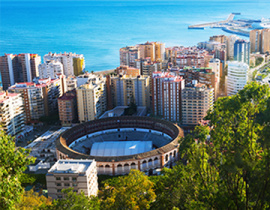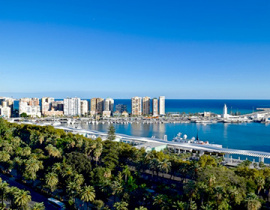Education System and Schools in Spain
The Spanish education system stands out as one of the most advanced learning frameworks in Europe. Both the General State Administration and the autonomous communities support and manage the education system.
The Ministry of Education and Vocational Training is responsible for overseeing educational facilities and their operations. Meanwhile, the Department of Education in each autonomous community handles aspects such as funding, educational standards, and curriculum.
Getting education in Spain is free and open for public access. Compulsory education in Spain is mandated for all children between the ages of 6 and 16. One school year begins in mid-September and lasts until the end of June.
In public schools, Spanish is the main instruction language. International schools in Spain offer a diverse array of classes primarily conducted in English. Other global schools may instruct in additional foreign languages like French, German, or Dutch. Notably, bilingual teaching methods are more prevalent in higher education, particularly in universities.
Also, the teaching language may also differ from one autonomous region to another. There might be regional variations in the curriculum. For instance, Catalan or Basque languages may be the primary teaching languages in the Basque Country or Catalonia.
Education Stages in Spain
The education levels in Spain can be boiled down to four main stages. The first is Early Childhood Education which is followed by Basic Education. The higher level systems are the Upper Secondary Education and Higher Education.
Early Childhood Education is the nursery and pre-school stage. Basic education includes primary and compulsory secondary education. The upper secondary education stage includes Bachillerato and vocational training. Higher education consists of university education, advanced vocational training, and higher artistic education.
Early Childhood Education
 Early childhood education is not one of the main Spanish education requirements. This phase also comprises two stages in itself. The first stage is for children aged 0-3 years. The second stage is for children aged 3-6 years.
Early childhood education is not one of the main Spanish education requirements. This phase also comprises two stages in itself. The first stage is for children aged 0-3 years. The second stage is for children aged 3-6 years.
The initial stage (0-3 years) is mostly nurseries. There are mostly private nurseries not funded by the state. It is also possible to find state nurseries, which might be a few in number, but they typically involve fees.
In the following stage, children aged 3 to 6 attend preschools in Spain. A big part of pre-schools are often integrated into primary schools. There are state-funded pre-schools, and private institutions to choose from.
Basic Education in Spain
Basic education in Spain is mandatory. For all the children aged between 6-16 who are residents in Spain, compulsory education has two main stages:
• Elementary School (Educación Primaria)
• Compulsory Secondary School (ESO)
Elementary School is known as Educación Primaria and is for children aged 6 - 12. They follow the primary school curriculum in Spain. There are 3 main cycles in the primary education in Spain. The first cycle consists of 1st and 2nd grade. Meanwhile, the second cycle is known as 3rd and 4th grade and the last one, the third cycle is the 5th and 6th grade.
Compulsory Secondary School is designed for adolescents aged 12 to 16. At this stage, there are public schools, private schools, and state-funded private institutions. This phase comprises two cycles. The first cycle consists of the 1st and 2nd years. The second is the 3rd and 4th years of mandatory secondary education.
During basic education, children receive basic education, particularly in the Spanish language. The additional subjects are science, mathematics, social studies, arts and crafts, and regional language. Specialized fields may include literal studies, physical education, literature, technology, and geology, among others.
To progress to the next academic year, students must pass final exams at the end of the school year. Otherwise, they face repeating the class.
Upper Secondary Education
 Upper secondary education is not mandatory. It is developed to offer more advanced and comprehensive education. In this way, adolescents can specialize in certain fields. It lasts two academic years after completing the compulsory secondary education. The general attendee profile is the adolescents between the ages of 16 and 18.
Upper secondary education is not mandatory. It is developed to offer more advanced and comprehensive education. In this way, adolescents can specialize in certain fields. It lasts two academic years after completing the compulsory secondary education. The general attendee profile is the adolescents between the ages of 16 and 18.
There are two types of institutions for higher secondary education. It is determined by the field they are interested in.
• Bachillerato
• Upper Vocational Training (Ciclos Formativos)
Bachillerato is a more often preferred program that lasts two years. After completing the two-year course of study, students are obliged to pass the final exam. This education is essential for students who are looking for higher education in the universities. The credential allows students to enroll in a university for further studies.
Vocational training is the perfect option for acquiring skills in a selected business field. This educational segment enables students to undergo professional training to develop expertise in specific subjects. It allows them to facilitate a swift entry into the business world. Vocational education has two main stages. Each of these is planned as a two-year program:
• FPB - Formación Profesional Básica (Basic Vocational Education)
• CFGM - Ciclo Formativo de Grado Medio (Medium Vocational Education)
Higher Education
The higher education stage mostly consists of university education. However, there are two other non-university education stages as well. The first one is the Higher Level Vocational Education known as CFGS. The second one is the Higher Art Education.
Non-University Education
 Ciclo Formativo de Grado Superior is the higher phase of vocational training. It is the following and more advanced stage of CFGM or Medium Vocational Education in English. It is a 2-year course of study and an internship in the selected field is compulsory. The graduates get a Título de Técnico Superior diploma.
Ciclo Formativo de Grado Superior is the higher phase of vocational training. It is the following and more advanced stage of CFGM or Medium Vocational Education in English. It is a 2-year course of study and an internship in the selected field is compulsory. The graduates get a Título de Técnico Superior diploma.
Enseñanzas Artísticas Superiores is the higher art education stage. Graduates get a diploma called Título Superior after 4 years of education. In general, it is the most suitable option for students who specialize in certain art professions. These professions can be theatre, visual arts, music, dance, or design.
University Education
Spain is home to one of the first universities in Europe. The first university in Spain is the University of Salamanca. It was founded in 1218 and is still in operation today. It has set a remarkable example for the first-ever higher education institutions in Europe.
As of 2024, there are more than 80 universities in Spain. Many of the higher education institutions receive state support, alongside private establishments.
Spanish universities only admit students who have passed a compulsory entrance exam. Students who pass the exam are found suitable candidates for university education. There are 3 cycles of higher education in universities:
• Grado (Bachelor's or undergraduate degree, 4 years)
• Máster (Master’s Degree, 1 to 2 years)
• Doctorado (PhD, 3 to 5 years)
The Bachelor's degree is granted after 3-4 years of education. Medical study programs might last longer. For example, fields like dentistry, pharmacy, and veterinary medicine last 5 years, while main medical education lasts 6 years.
Students with a bachelor’s diploma get a chance to apply for master's programs. Master's degrees range from 10 to 24 months, while doctoral programs (PhD) span 3 - 5 years.
Types of Schools in Spain
There are 4 main types of Spanish schools.
• Public schools (Colegios Públicos) in Spain welcome all children, including expats. These schools are funded by the state itself. The cost of education in Spain’s public schools will be zero. Parents only might be responsible for covering the expenses of additional things like activities or stationery.
Enrollment in state schools is determined by residential address. It means that students must be registered on the municipal register at their local town hall. It is always crucial to consider school options for families with children when buying a house in Spain. The official language is Spanish in public schools.
• State-funded private schools (Colegios Concertados) are semi-private schools. They are supported by the state itself, or another sponsor such as the church itself. A great part of these schools embraces a religious doctrine, mainly Catholic.
Fees are quite low when compared to the cost of private schools in Spain. Families usually cover 50% of the fees, with the remaining 50% financed by the sponsor.
• Private Schools (Colegios Privados) are 100% private establishments. When we compare public vs private schools in Spain, private schools stand out as more advanced education facilities. This is mainly because they offer a more flexible learning environment with additional methods and practices. They are owned by private entities.
Fully private schools require 100% tuition fee, yet are still more affordable than in other European countries. The fees may vary from one school or region to another. Some of these schools can also provide entirely English-taught education. Some private institutions follow a bilingual approach combining Spanish and English while adhering to the Spanish curriculum.
• International Schools: International schools in Spain adopt the curriculum of their chosen country. British schools in Spain typically follow the British curriculum. Meanwhile, German-taught international schools in Spain follow the German curriculum.
Student Visa in Spain
.jpg) Foreign students can get an education with a valid student visa in Spain. There are two different specially planned visa types for students: Short-term and Long-term Student Visas. Only foreigners who visit the country for educational purposes can get these visas. There is also another option, the Golden Visa, that allows foreign residents in Spain to study in the country.
Foreign students can get an education with a valid student visa in Spain. There are two different specially planned visa types for students: Short-term and Long-term Student Visas. Only foreigners who visit the country for educational purposes can get these visas. There is also another option, the Golden Visa, that allows foreign residents in Spain to study in the country.
The short-term student visa in Spain is valid for up to 180 days. It is often granted for short-term courses of study. It requires a simpler application process compared to a long-term student visa.
The long-term student visa in Spain is the most sought-after type for academic programs exceeding 6 months. This visa grants international students the ability to enroll in undergraduate or graduate programs and reside in Spain.
Golden Visa in Spain is originally an investor immigration program but it grants additional rights to foreigners. It allows visa holders and their first-degree relatives to live, work, and study in Spain. The investors who obtain Golden Visa can also involve their children in the visa program. This means that children of Golden Visa applicants can apply to get an education in Spain.
Move to Spain for a Better Future for Your Children!
Spain’s advanced education system creates an open space full of opportunities for students to achieve their academic goals. For a better education experience for your children, seek opportunities to embark upon a new journey to live in Spain.
Find the most suitable home to buy in Spain, and apply for a Golden Visa. It is a wonderful chance to benefit from the endless opportunities that come with residency in Spain. By getting a Golden Visa, you can provide the highest quality education to your children in Spain.






